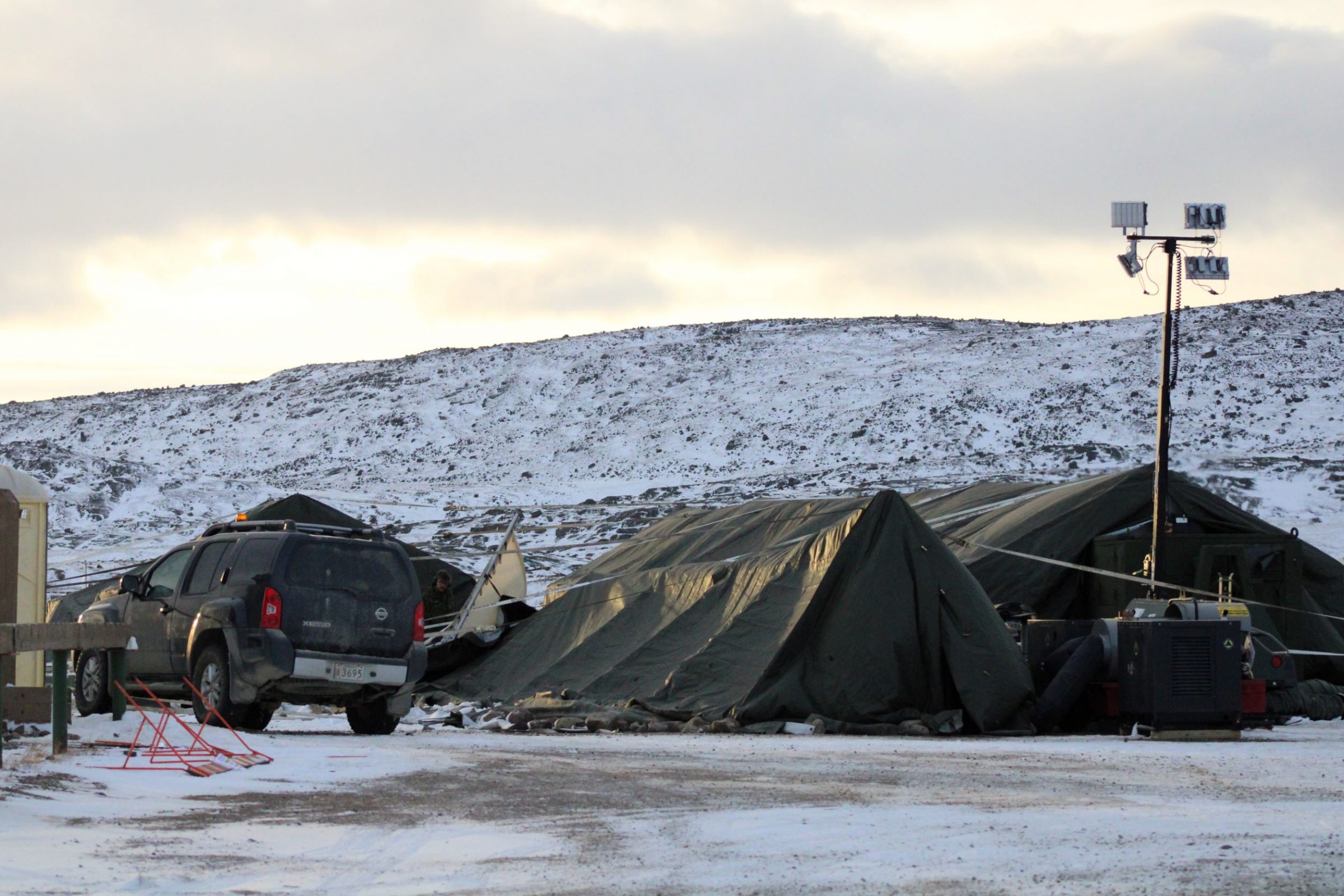Canadian military plans to move Iqaluit water operation indoors
The operation to supply clean water was halted for several days after high winds damaged equipment.

The Canadian military is planning to move its suspended reverse osmosis water purification operation in Iqaluit indoors, says Maj. Susan Magill.
The Canadian Armed Forces operation that is providing purified water to Iqaluit residents who were told not to drink municipal tap water eight weeks ago was suspended last week after high winds damaged some of its equipment set up along the Sylvia Grinnell River. The military operation has been temporarily supplying water to Iqaluit after diesel fuel was detected in the city’s water supply in mid-October.
[For some Alaska villages, the lack of modern water and sewer service means more health risks]
The military’s new plan is to haul water from the Sylvia Grinnell River to the North American Aerospace Defense Command’s Forward Operating Location at the Iqaluit airport, where the military’s purification equipment is already in place, Magill said in an interview with Nunatsiaq News on Tuesday.
Two water tanks arrived in Iqaluit Tuesday afternoon, Magill said. They will be fitted to trucks that will also carry icebreaking equipment and hoses.
The military is still waiting for permission from NORAD to operate the water purifiers at the new location, she said.
On Nov. 23, the military suspended its operation after a tent heating potable water had its frame snapped from strong winds during a blizzard.
Increasingly harsh weather prompted the military to develop its plan to purify water indoors, Magill said.
“As the weeks went by it wasn’t getting any easier,” Magill said.
The water purification operation is scheduled to end Wednesday, Dec. 1. Magill said she does not know whether the operation will be extended, but “when [the military] goes into something we don’t slow down because the deadline is approaching.”
“We will go at full speed ahead until we are told to stop.”
On Nov. 2 the City of Iqaluit said its testing showed the water supply met Canadian health standards but the do-not-drink order remains in effect until the chief public health officer lifts it. The chief public officer has set out a list of requirements the city must complete before that happens. The requirements include testing, reports, contingency plans and risk assessments.
Even though the military’s water purification unit had never operated this far north, moving to the Forward Operating Location was not the preferred option, since it requires permission from NORAD, Magill said.